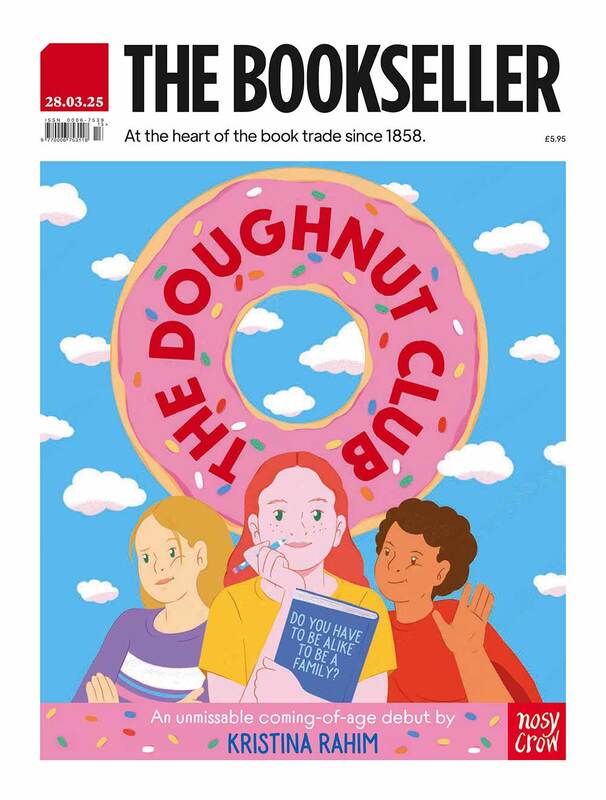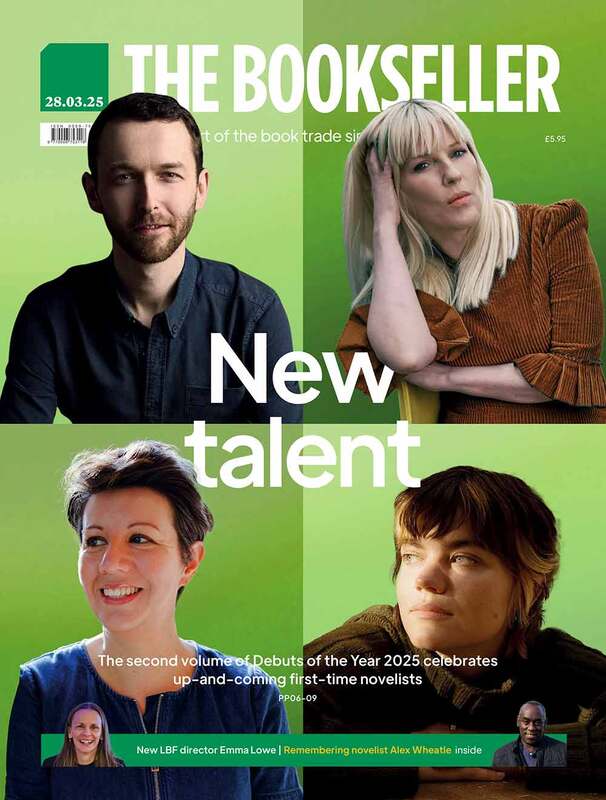You are viewing your 1 free article this month. Login to read more articles.
Richard Zimler: Captivated by the magical
The first publication in a new fiction strand coming from Constable is to be Richard Zimler's follow-up to The Last Kabbalist of Lisbon, which Arcadia published in the UK to considerable success. The Last Kabbalist told of a Jewish manuscript illuminator, Berekiah Zarco, investigating the murder of his uncle in Portugal in the early 16th century; the novel drew heavily on the medieval Jewish mystical tradition of kabbalah.
Hunting Midnight (4th March 2004, B format p/b original, £8.99, 1841197718) is set in the early 19th century, and tells of one of Zarco's descendents. A young child, John Zarco Stewart, is living in the Portuguese town of Porto, unaware--because his family has hidden its Jewish identity to avoid persecution--of his own heritage. The arrival in Porto of Midnight, an African bushman, is the catalyst for a story of love and loss that, after Midnight disappears, takes John on a journey to America's deep south in search of his African friend. The tale is again redolent of mystical traditions, with African mythology interwoven with kabbalist lore.
Zimler explains that he was in fact brought up as a secular Jew in New York. He moved to Porto over a decade ago, unable to speak Portuguese, but needing to make a fresh start after the death of an elder brother from AIDS. Life in this historic city was an immediate success, and he and his partner continue to live there very happily.
The discovery of kabbalah came one day while he was browsing in the library of his mother's house in New York, and discovered a book on Jewish manuscript illumination, which he had never even heard of before. "I saw these incredible, gorgeous illuminations which had been done all across the Jewish world, and a lightbulb lit in my head: I would write a novel about a manuscript illuminator."
He experienced a "revelation", he says, as he researched the kabbalist tradition for the book. "Before I started my research, I could only see the surface of Judaism; now I can see a few feet down into the water, and of course the great mystics can see all the way down to the sea floor."
The tradition also freed him as a writer, enabling him to write The Last Kabbalist of Lisbon on "a more profound level" than he could have done otherwise. "In the book, the narrator has to find the murderer. But because he's a kabbalist, and he's interested in the symbolic meaning of everything, it's not so important for him to find the identity of the killer--it's important to find out what the killing means to him, to his family, to the Jewish community in Lisbon, and even what it means to God."
The new novel began when, on a visit to Austria, he picked up an anthropologist's book on the bushmen of southern Africa and became "absolutely captivated" by the mythology of the people. "It is an immensely powerful oral tradition, it just overwhelmed me. Right away an image came into my head, who knows why--perhaps it comes from the universe, or from somewhere deep inside the writer--of a bushman from the south of Africa, dressed very elegantly in a scarlet waistcoat, and living with a middle-class European family.
"As I started to do the research, I realised he was living with a secret Jewish family in Portugal, and as I read the bushmen mythology and stories, I began to see parallels with Jewish mysticism and stories I already knew, so that everything clicked into place.
"I saw I could create this very powerful and curious character, called Midnight. To me he's someone who is very real, with faults and foibles, but who has this other non-rational aspect that's magic. When we fall passionately in love with someone, that person has so much power over us at that moment that it is almost as if they really are a magician or sorcerer."
"When Midnight perhaps dies--and then John finds out that might not be the case--he knows he can't go on unless he travels to America to find out what's happened to him."
Benedicte Page
* Richard Zimler will visit the UK for Jewish Book Week at the end of February 2004
* Consumer advertising in the literary press









